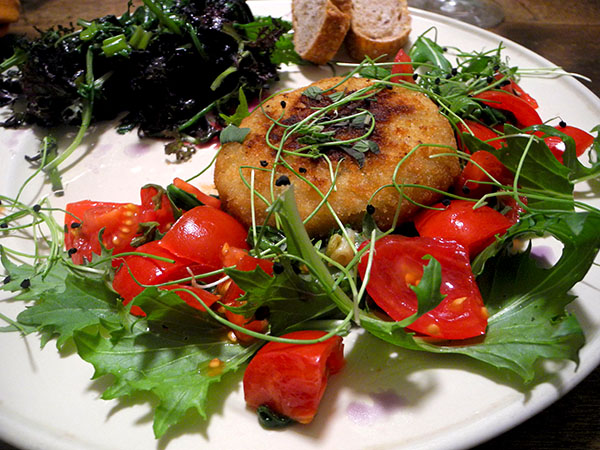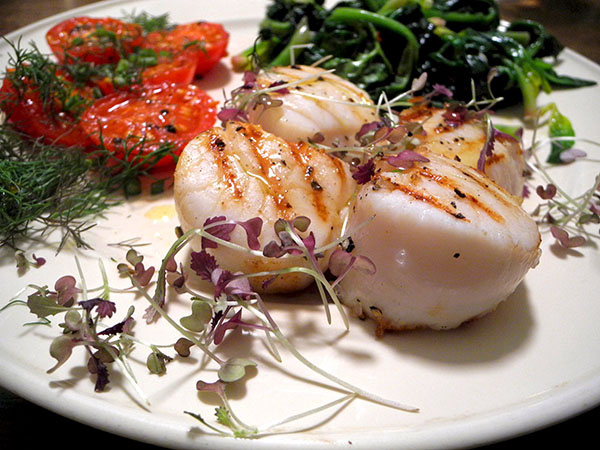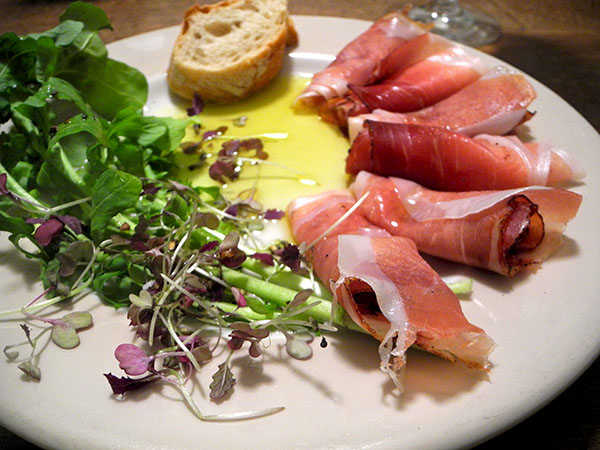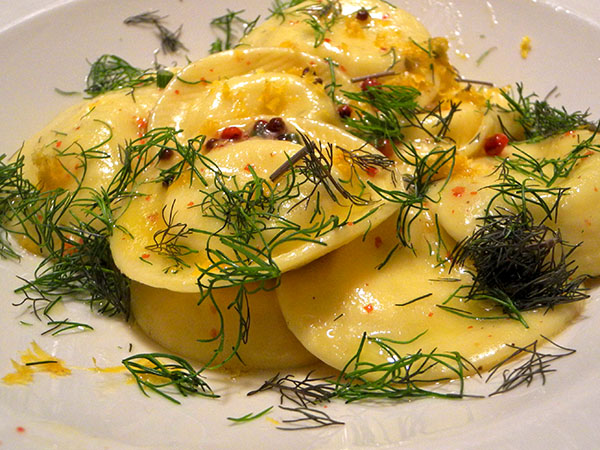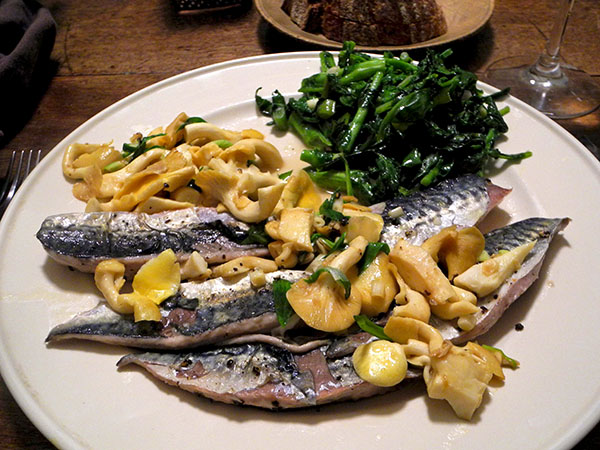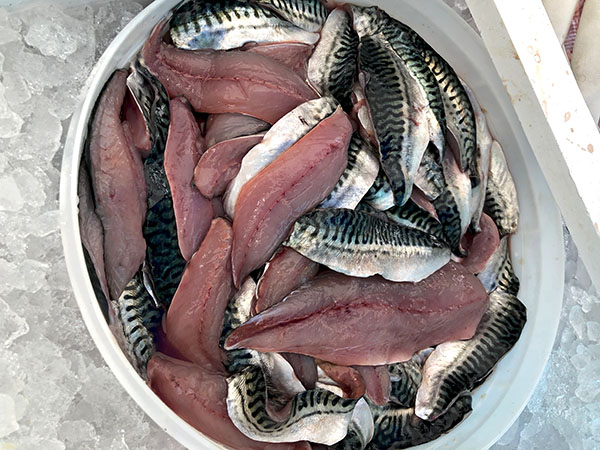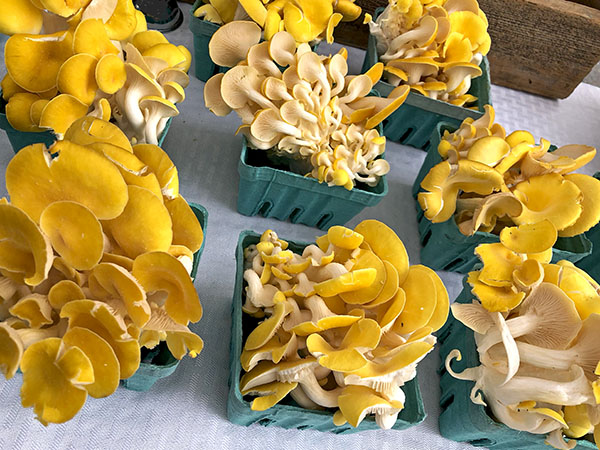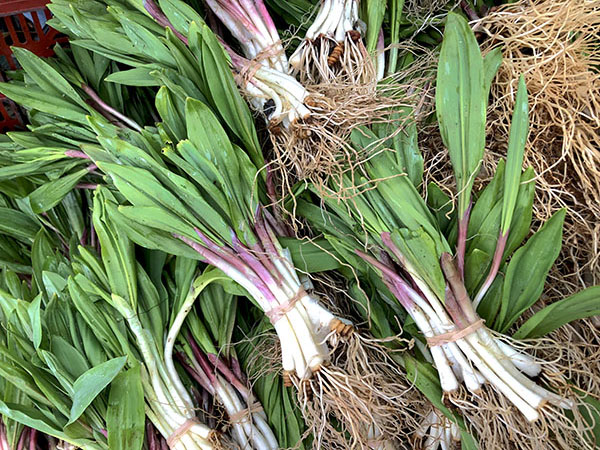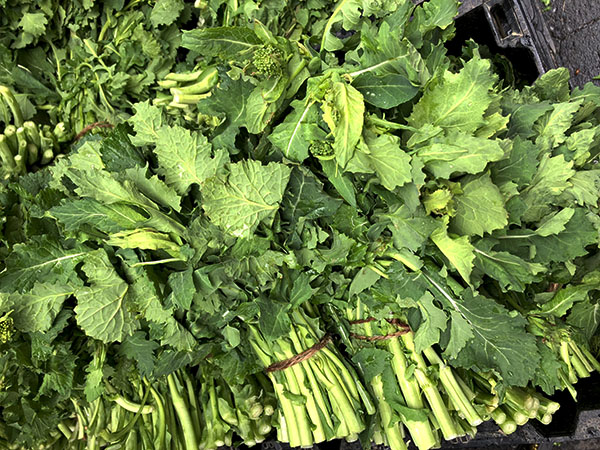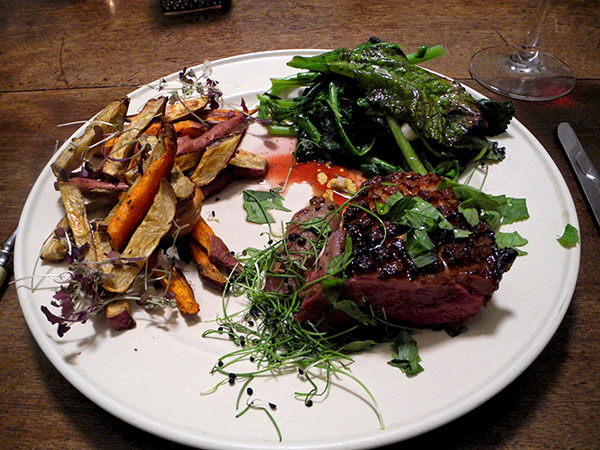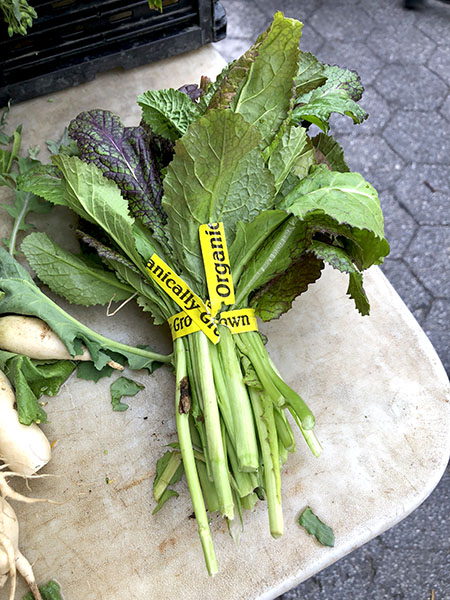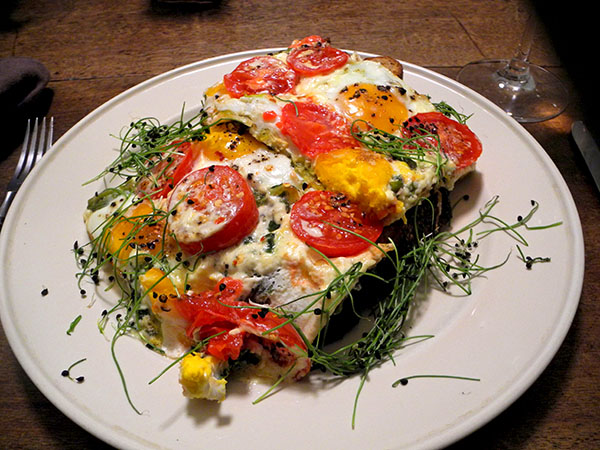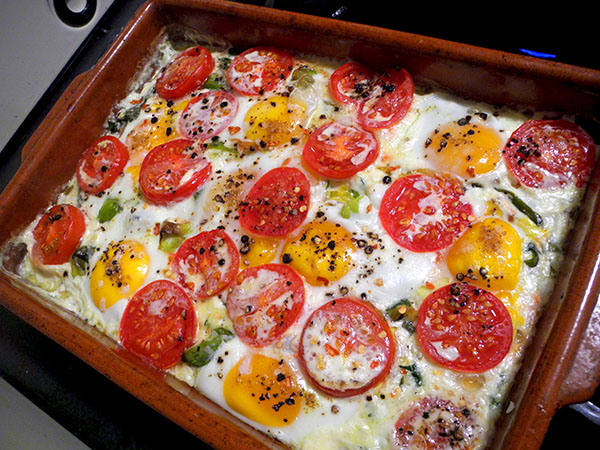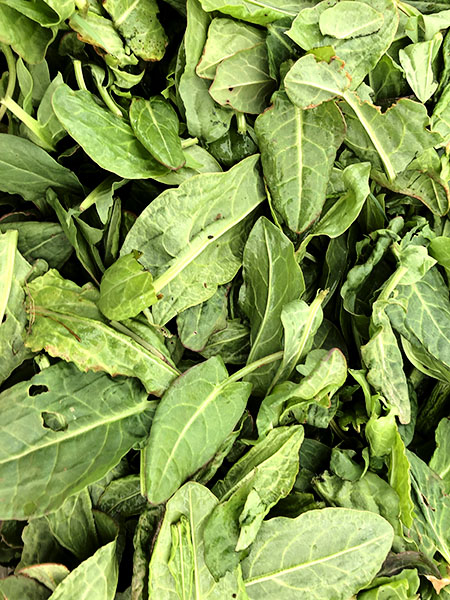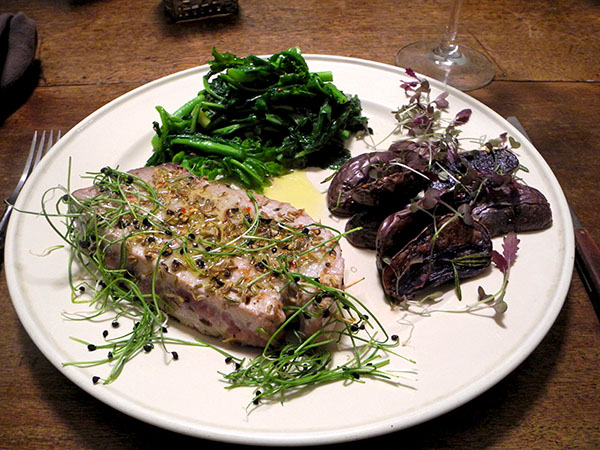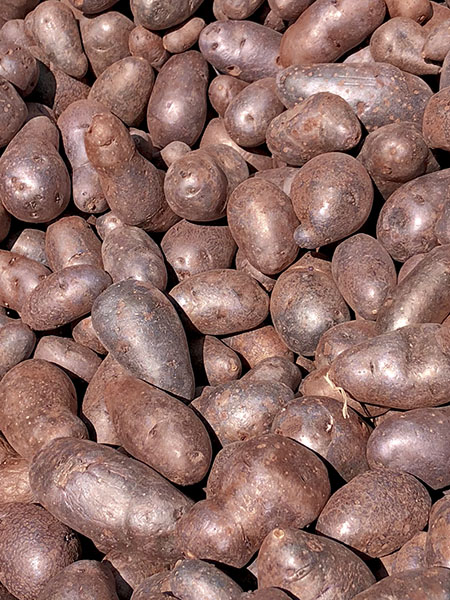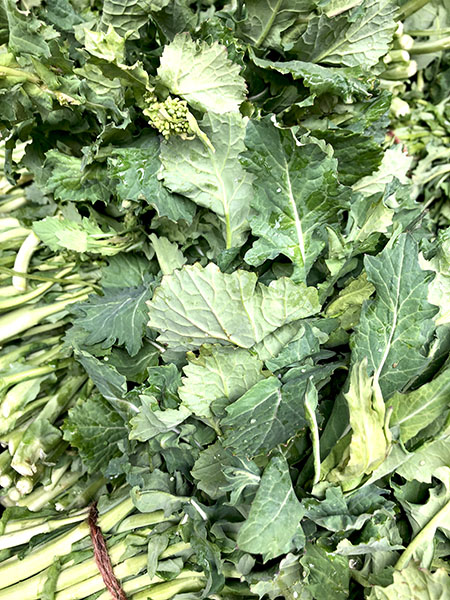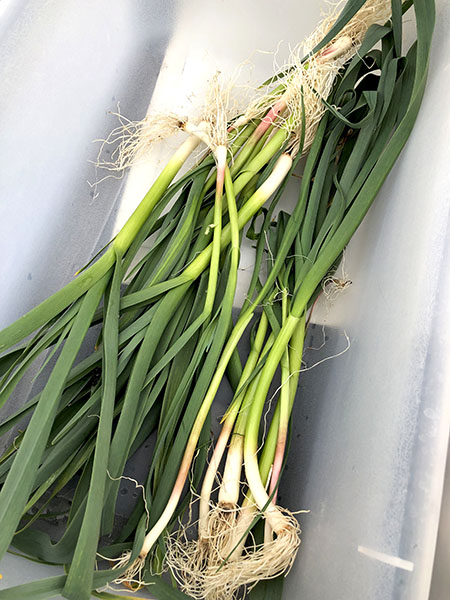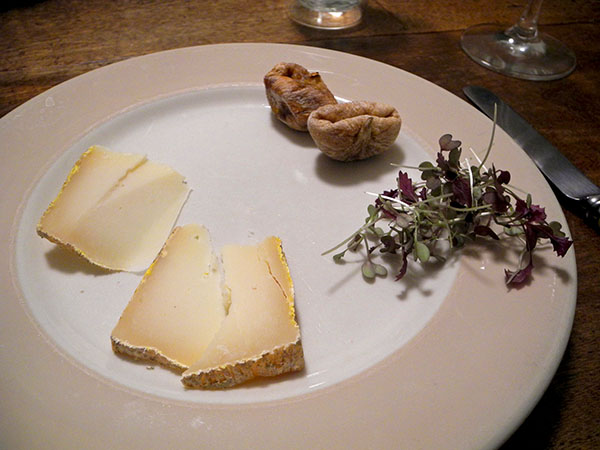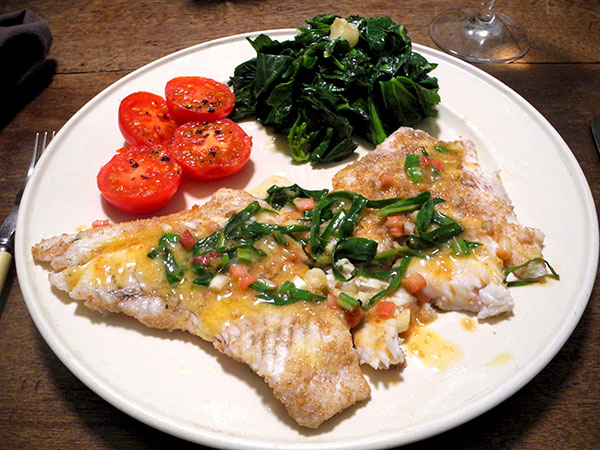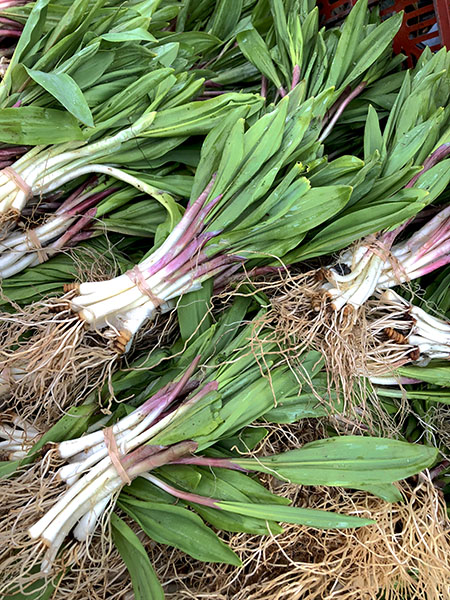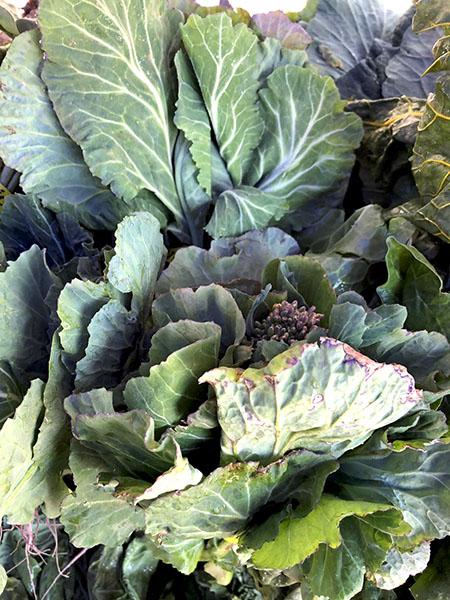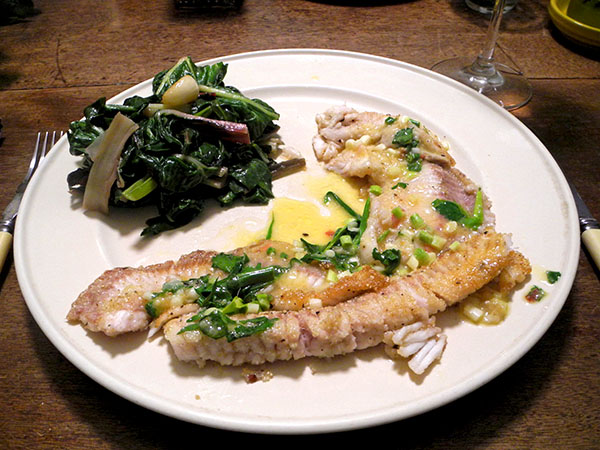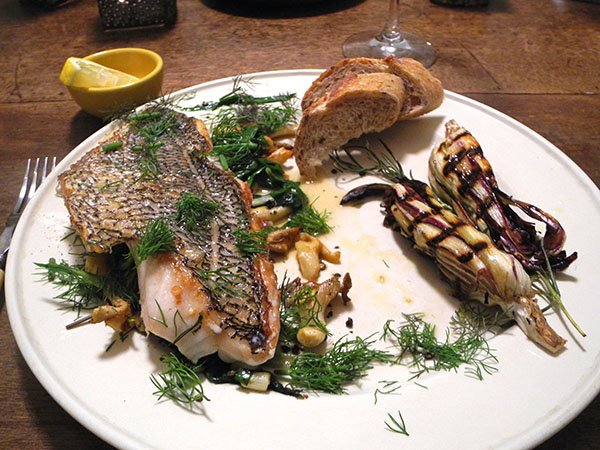
Last night I tweeted that I had found my go-to recipe for sea bass. I’ll elucidate.
I had arrived early (early for me) at the greenmarket that day, so there was a huge selection at the fish stand. Filtering out the various finfish and shellfish I’d cooked recently, which accounted for a good number, I narrowed our dinner choice down to 2 very fresh half-pound sea bass fillets. A few minutes later I found some terrific-looking greens, and a favorite crunchy multigrain baguette.
I thought I was all set, but once I arrived home I remembered that I had a lot of ramps, and a small bag of oyster mushrooms in the refrigerator. I had been determined to prepare the fish in the most minimal way I could this time, and concentrate on producing a beautiful crispy skin, so I worked at coming up with a recipe that would fit the new program. What you see above was the product, and the tweet described my excitement with the result.
I’m only sorry I didn’t spend a little more time on the photograph above, because the meal tasted far more exciting than it looks.
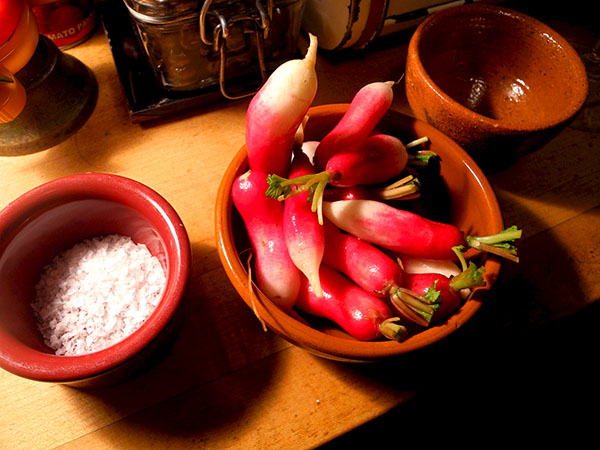
I placed some radishes on the kitchen counter for the cook and his muse to nibble on while before the meal was served.
Otherwise the dinner was contained in one course.
- *three stems of spring garlic from from John D. Madura Farm, cut into one-inch lengths, sautéed until softened in a little Whole Foods Market Portuguese house olive oil and Organic Valley ‘Cultured Pasture Butter’ inside a large rectangular, enameled cast iron pan over medium heat, then removed and discarded, or maybe set aside for another day [NOTE: this first step, in which mature garlic could be substituted at other times of the year is definitely optional, especially if the cook is in a hurry], a little more oil and butter added, the flame raised to medium-high and two nearly-8-ounce sea bass fillets from Pura Vida Seafood Company, previously rinsed, dried with paper towels, and seasoned with sea salt, added to the pan and seared, skin side down first, for 3 to 4 minutes (the skin should be nicely golden and fairly crisp by then), turned over and cooked for another minute or so, removed and placed on 2 plates, kept warm, either in a warm oven or tented with aluminum foil, while 2 ounces of chopped yellow oyster mushrooms from Blue Oyster Cultivation were added to the skillet and sautéed until slightly undercooked, more oil added once again, if necessary, and a dozen or so trimmed and washed young ramps from Lucky Dog Organic Farm tossed in (the bulbs chopped, the greens sliced), and sautéed for roughly one minute, the ramps and mushrooms divided between the 2 warm plates and a bass fillet placed on each ‘bed’, finished with a generous squeeze of an organic Whole Foods Market lemon, and garnished with chopped bronze fennel from Norwich Meadows Farm, ending with lemon wedges placed on the side of the plates [NOTE: the mushrooms are an option, and their quantity can vary a bit, but they really enrich the flavors of both the fish and the ramps]
cooks critique: the bed of mushrooms and ramps should have been more visible; and while I eventually realized the bass had in fact been cooked perfectly, there was a scary moment after I first cut into one of the fillets to check its color and opacity (it’s no fun even contemplating having to return any seafood to a heat source once it’s arrived on the plate); finally, I described it as my “go-to recipe now for sea bass, and yet it clearly includes a few very specifically-seasonal ingredients, so my explanation is that all of those lend themselves to one or more substitutions (mature garlic for spring garlic; any mushrooms, even reconstituted ones, for the oyster mushrooms; almost anything green, herb or vegetable, for the ramps; and all kinds of herbs or micro greens would love to stand in for the bronze fennel
- slices, or more like wedges, of a terrific multigrain baguette from Bread Alone
- one small head of a northern Italian tardivo radicchio from Flatiron Eataly [I felt guilty that it wasn’t local, but it looked so pretty on the shelf, I love that very special chicory, and I realized it meant I wouldn’t have to wait maybe 6 months for the wonderful Campo Rosso Farm‘s crop for my next hit], washed under cold running water, the moisture shaken off, cut in 4 sections lengthwise and a V-cut made most of the way through the root end, allowing that part to cook more rapidly, tossed with a little olive oil, sea salt, and freshly-ground black pepper, arranged inside an enameled cast iron pan over medium-high heat, one of their cut sides down, each covered with a couple of rosemary sprigs from Stokes Farm, cooked for a few minutes then turned onto a second cut side and cooked for a few more, and finally turned and cooked briefly onto the third, before they were arranged on the plates [note: the tardivo can be served either hot or warm, so it’s an excellent low-stress accompaniment to meats or fish]
- the wine was a California (Sonoma) white, Jacqueline Bahue Carte Blanche Sauvignon Blanc Sonoma Valley 2017, from Naked Wines
- the music was the Berlin Classics album, ‘Vivaldi: La Venezia di Anna Maria’
